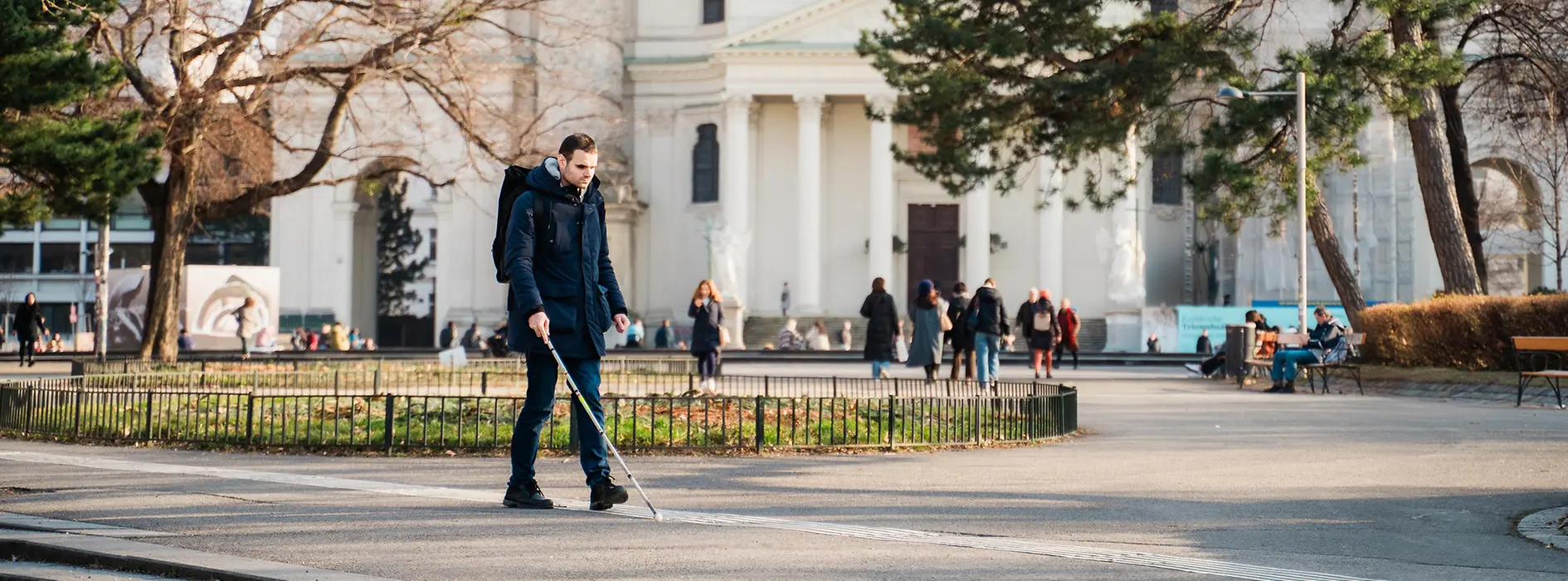Accessibility
Vienna has been committed to inclusion for years – both as a city and as a destination for tourism. In practice, this means designing all of its offerings and services in such a way that they are accessible and usable for everyone – regardless of their physical, sensory or cognitive limitations, their age, or their personal needs.
From years of experience, we’ve learned that a city which is appealing to its residents draws visitors too – and vice versa: if, as hosts, we can make Vienna welcoming and accessible for visitors with diverse needs, we will also be better placed to identify insights that help to make the city more inclusive overall. The Austrian capital is committed to promoting equal participation in community life, irrespective of an individual’s abilities or background. By prioritizing accessibility, we’re not just targeting a loyal, growing audience but also making an active contribution to the city’s goals, such as the ones set out in the Inclusive Vienna 2030 strategy.What Does Tourism Have To Do With Inclusion?
The good news: we’re living longer and staying mobile until much later in life. That said, studies show that the proportion of people with disabilities increases considerably with age. In the EU alone, around 87 million people experience disability[1] – a growing demographic that could find cities particularly appealing as travel destinations if destinations invest in accessibility. [1] Persons with Disabilities - European Commission. The UN Convention on the Rights of Persons with Disabilities defines persons with disabilities as “those who have long-term physical, mental, intellectual or sensory impairments which in interaction with various barriers may hinder their full and effective participation in society on an equal basis with others”. A Growing Target Group
Our Action Program is designed to help businesses become more inclusive and remove barriers to accessibility. It’s not just about coming up to the minimum statutory requirements – instead we want to create an offering that can be accessed by as many current and new target groups as possible. We’ll begin with key Visitor Economy sectors – hotels and cultural institutions – and a baseline survey. In partnership with Modul University, we’ll help businesses self-evaluate on accessibility factors, which will set the stage for targeted improvements in this area. The best outcomes result from a collaborative approach that involves those affected and experts working together.What Are We Planning?
Interacting with people with disabilities can be challenging for hotel staff. Not everyone has had exposure in this area, and a lack of experience can lead to uncertainty. Disabilities are diverse too – so there is no such thing as a one-size-fits-all approach. Even so, targeted training measures can provide staff with the necessary support and help to highlight critical aspects of such interactions. Courses are available from ÖZIF, the federal advocacy group for people with disabilities, as well as private providers like myability.Awareness and Training
ÖZIF also offers a certification program to help businesses actively promote their accessibility credentials – with its FAIR FOR ALL seal representing the gold standard. Participating companies go through a multi-stage process which covers everything from consulting on building upgrades, staff awareness training, and a final audit. Individual elements of the process can also be booked separately via ÖZIF. The Vienna Economic Chamber provides information packs for building accessible facilities. It sets out minimum dimensions for maneuvering spaces, temporary aids, and required door widths. Do Good and Talk About It
Through this Action Program, we’re helping businesses in the Visitor Economy to develop qualities that already align with ESG reporting standards. Rather than expecting individual companies to fund training or upgrades on their own, we’re pooling resources and coming up with solutions together. The Vienna Tourist Board is already focusing on accessibility in its communications to provide a clear overview of the city’s barrier-free offerings.Added Value Through Sustainable Action

